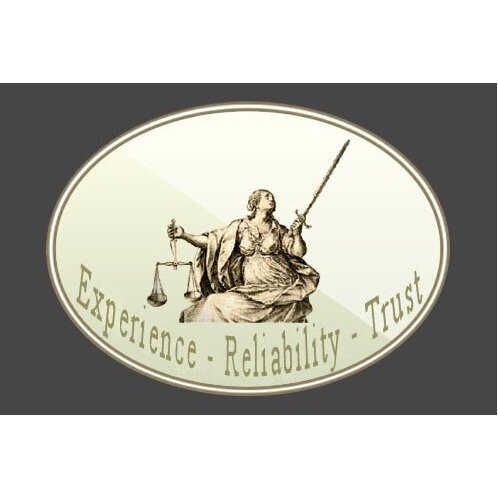Best Renewable & Alternative Energy Lawyers in Pattaya
Share your needs with us, get contacted by law firms.
Free. Takes 2 min.
List of the best lawyers in Pattaya, Thailand
About Renewable & Alternative Energy Law in Pattaya, Thailand
Renewable and alternative energy laws in Pattaya, Thailand are rapidly evolving to support the country's goal of increasing energy security and environmental sustainability. Pattaya, as a prominent city in the Chonburi province, is embracing solar, wind, and biomass projects both for commercial and residential use. The government encourages such development through various incentives and regulations to reduce reliance on fossil fuels and to address environmental concerns. Businesses, investors, and homeowners considering renewable energy installations must navigate a legal landscape that covers permits, grid connections, investment incentives, zoning, land use, and environmental impacts.
Why You May Need a Lawyer
Legal guidance is crucial when dealing with renewable and alternative energy projects in Pattaya for several reasons. Common situations requiring a lawyer include:
- Applying for and obtaining permits and licenses for energy installations
- Interpreting and complying with local, regional, and national energy regulations
- Negotiating contracts with energy suppliers, contractors, or government agencies
- Protecting intellectual property rights relating to new energy technology
- Addressing zoning or land use challenges
- Resolving disputes over energy supply, land, or environmental impact
- Securing investment or financing for renewable projects
- Ensuring eligibility for government incentives or subsidies
Local Laws Overview
The legal framework for renewable and alternative energy in Pattaya is shaped by both national policies and local ordinances. Key aspects include:
- Permitting and Licensing: All renewable energy installations must comply with local and national regulations, including environmental assessments for certain projects.
- Feed-in Tariffs: Thailand has policies to encourage energy producers to sell surplus power back to the grid at fixed rates.
- Investment Incentives: The Board of Investment of Thailand offers tax holidays and other incentives for renewable energy investors.
- Zoning Laws: Local zoning dictates where renewable energy systems, such as solar panels or wind turbines, can be installed.
- Environmental Protection: Projects must adhere to laws preventing pollution and managing environmental impact, often requiring assessment and approval.
- Construction Standards: Installations must meet building codes and safety standards set by local authorities to ensure compliance and safe operation.
Frequently Asked Questions
What types of renewable energy are commonly used in Pattaya?
Solar energy is most widely used, followed by wind and small-scale biomass projects. Offshore wind and tidal energy are being explored for future development.
Do I need a permit to install solar panels on my property?
Yes, most new installations require local government permits, and compliance with building and electrical codes is necessary.
Can I sell excess solar power back to the government or grid in Pattaya?
Thailand has feed-in tariff schemes that allow private producers to sell excess power to the grid, but registration and compliance with program requirements are essential.
Are there government incentives for renewable energy in Thailand?
Yes, incentives include tax breaks, subsidies, and special tariffs. The Board of Investment provides investment privileges for eligible projects.
How do I ensure my project complies with environmental laws?
Large projects may require an Environmental Impact Assessment (EIA). All projects must comply with Thai environmental regulations to avoid penalties.
Do zoning laws affect where I can install renewable energy systems?
Zoning can restrict or limit the type and size of installations. It is vital to verify with local authorities before beginning installation.
What legal issues may arise during a renewable energy project?
Issues can include contract disputes, land use challenges, regulatory compliance problems, and environmental complaints.
Can foreigners invest in renewable energy projects in Pattaya?
Foreign investment is permitted but subject to regulations, such as possible limits on land ownership. Legal support is advised for structuring investments.
Do I need to use licensed professionals for installation?
Yes, licensed contractors and certified electricians are generally required to ensure installations meet legal and safety standards.
How long does it take to get approval for a renewable energy project?
Timelines vary depending on the project’s size and complexity, but it usually takes several weeks to months to obtain all necessary permits and approvals.
Additional Resources
Several resources can assist those seeking advice or support for renewable and alternative energy projects in Pattaya:
- Department of Alternative Energy Development and Efficiency (DEDE)
- Board of Investment (BOI) Thailand
- Ministry of Energy, Thailand
- Provincial Electricity Authority (PEA)
- Thailand Greenhouse Gas Management Organization
- Pattaya City Hall Environmental Division
- Thai Renewable Energy Association
- Local environmental or energy legal firms
Next Steps
If you need legal assistance for a renewable or alternative energy matter in Pattaya, consider the following steps:
- Gather all documents and information about your planned or existing project
- Define your goals, such as installation, investment, dispute resolution, or compliance
- Contact a lawyer or law firm specializing in renewable energy law in Pattaya or the broader Chonburi province
- Consult with local government offices for initial guidance on permits and incentives
- Seek recommendations or references for legal experts with relevant local experience
- Clarify service fees and timelines with your chosen legal advisor before proceeding
By taking these steps, you can better navigate the legal and regulatory environment for renewable and alternative energy in Pattaya, Thailand, and set your project up for success.
Lawzana helps you find the best lawyers and law firms in Pattaya through a curated and pre-screened list of qualified legal professionals. Our platform offers rankings and detailed profiles of attorneys and law firms, allowing you to compare based on practice areas, including Renewable & Alternative Energy, experience, and client feedback.
Each profile includes a description of the firm's areas of practice, client reviews, team members and partners, year of establishment, spoken languages, office locations, contact information, social media presence, and any published articles or resources. Most firms on our platform speak English and are experienced in both local and international legal matters.
Get a quote from top-rated law firms in Pattaya, Thailand — quickly, securely, and without unnecessary hassle.
Disclaimer:
The information provided on this page is for general informational purposes only and does not constitute legal advice. While we strive to ensure the accuracy and relevance of the content, legal information may change over time, and interpretations of the law can vary. You should always consult with a qualified legal professional for advice specific to your situation.
We disclaim all liability for actions taken or not taken based on the content of this page. If you believe any information is incorrect or outdated, please contact us, and we will review and update it where appropriate.















